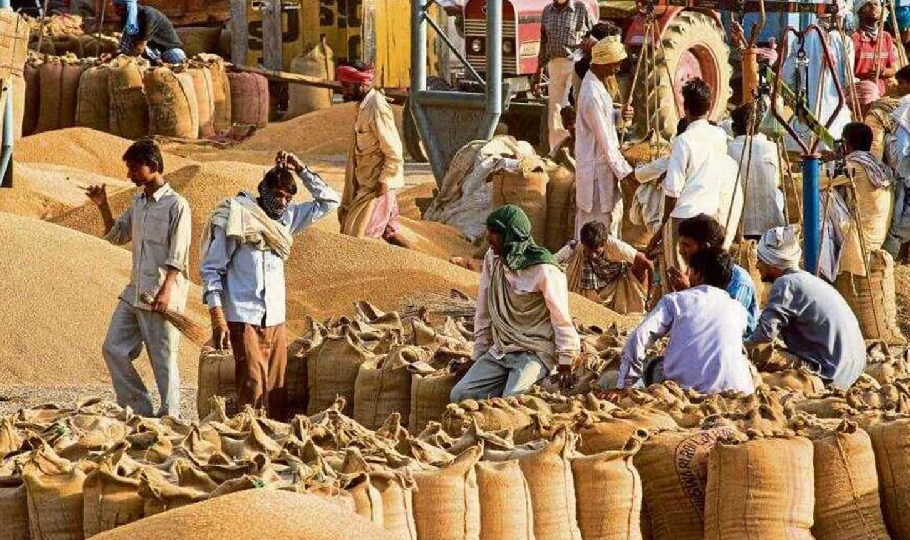
Pros, cons, costs and implementation dynamics of mandatory MSP
Why are farmer unions demanding legally-bound price support, and why is the Centre not so keen on the proposal?

The yearlong protest over three controversial farm laws should have logically ended when Prime Minister Narendra Modi, on November 19, said they would be repealed. But the protesting farmers, after initial shouts of triumph, were in no hurry to disperse due to two factors.
One, they wanted the laws to be officially repealed, in Parliament. Two, they wanted legal binding for minimum support price (MSP). While the first demand was just a technicality, the second involves an overhaul of the Indian agriculture sector and its economics.
The current MSP scenario
The Centre confers MSP on 23 crops — it is the recommended price at which select cereals, pulses, oilseeds and commercial crops can be procured from farmers. The purpose of MSP is to make sure farmers do not face huge losses because of these crops, that they recover at least 50% of what they invested in cultivating them.
Also read: Farm laws aside, Centre faces plenty of bouncers in Winter Session
However, at present, there is no legal guarantee vested on MSP. While roughly one-third of the rice and wheat produced is bought by government agencies at MSP, mostly in the northern states, the balance is procured by other buyers.
Very often farmers are pushed to sell below MSP. The minimum rate cannot be forced on the buyer since it is just an indicative/desired price and not a mandatory one. The farmer unions are seeking a law that would make MSP mandatory, so that the buyer cannot evade it.
Burden on the exchequer
If MSP is legalised through an Act of Parliament, the government would have to make sure each of the 23 crops is purchased fully at the prescribed rate. Apart from the practical complexity of such a framework, the proposed move is estimated to cost the exchequer ₹17 lakh-crore, though there are arguments over that figure. There is also the cost of developing new facilities that would be needed to store and transport the food-grains thus procured.
The move would open a Pandora’s box, say critics of MSP. “All the revenue will be diverted toward this and there will be no money left with the government to develop and maintain essential things like roads, bridges and so on,” observed Anil Ghanwat, a member of a Supreme Court committee formed to examine the farm laws. “If MSP is made legal for the 23 crops, soon, other farmers will also come up with the demand for their crops such as fruits and vegetables.”
There are also concerns that MSP will drive up food prices and therefore inflation will spike.
Perceived benefits
Economists and farm sector analysts argue that farmers require government support through legally-backed MSP. While liberalisation and free market policies may work in other (industrial) sectors, the agriculture sector has a huge population of poor farmers who do not get adequate remuneration for the effort they put in to cultivate crops.
Agriculture accounts for a substantial portion of the nation’s GDP, and employs hundreds of crores of people. Hence, providing pricing support is an economically prudent measure, and not just a sop, say experts.
Leaders such as Samyukt Kisan Morcha’s Yogendra Yadav have noted that to counter food inflation, the poor can be offered subsidised food — that making the food producer settle for lower prices just to tame inflation is unfair. Subsidies and price support for farmers is not a ‘poor nation’ practice, it is being done the world over, they point out.
Ways to implement MSP
To implement the MSP, the government can insist that private players also adhere to the regime, akin to the current procedure in sugarcane procurement. Alternatively, it can procure the 23 crops at MSP and then sell them to private players. State-run firms such as Food Corporation of India (FCI), National Agricultural Cooperative Marketing Federation of India (Nafed) and Cotton Corporation of India (CCI) can be roped in for this.
There is also the deficit payment route, under which farmers can sell at market rates and collect the difference (in case the selling price is lower than MSP) between those and MSP from the government.

